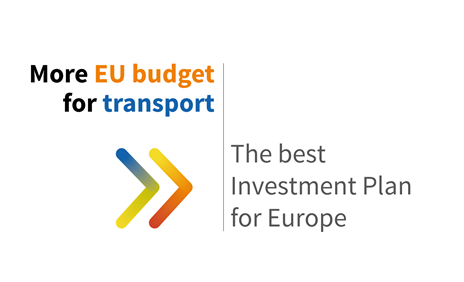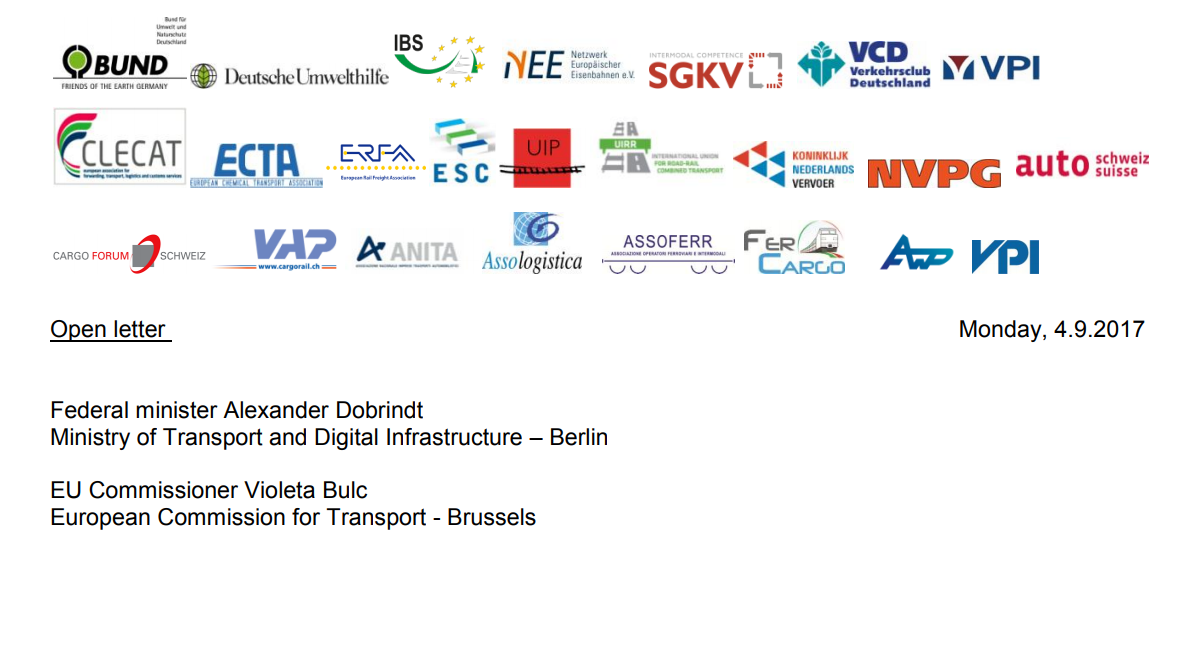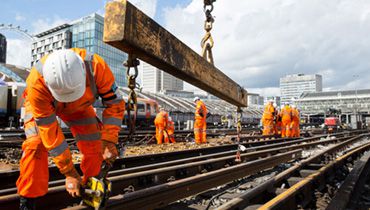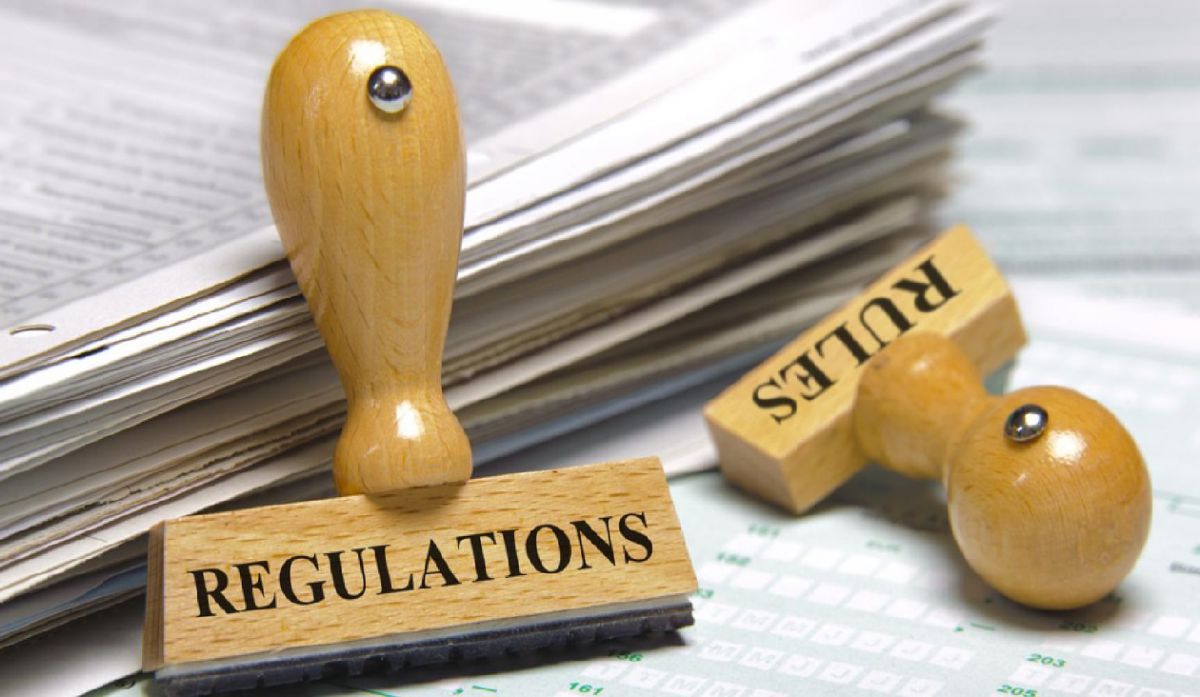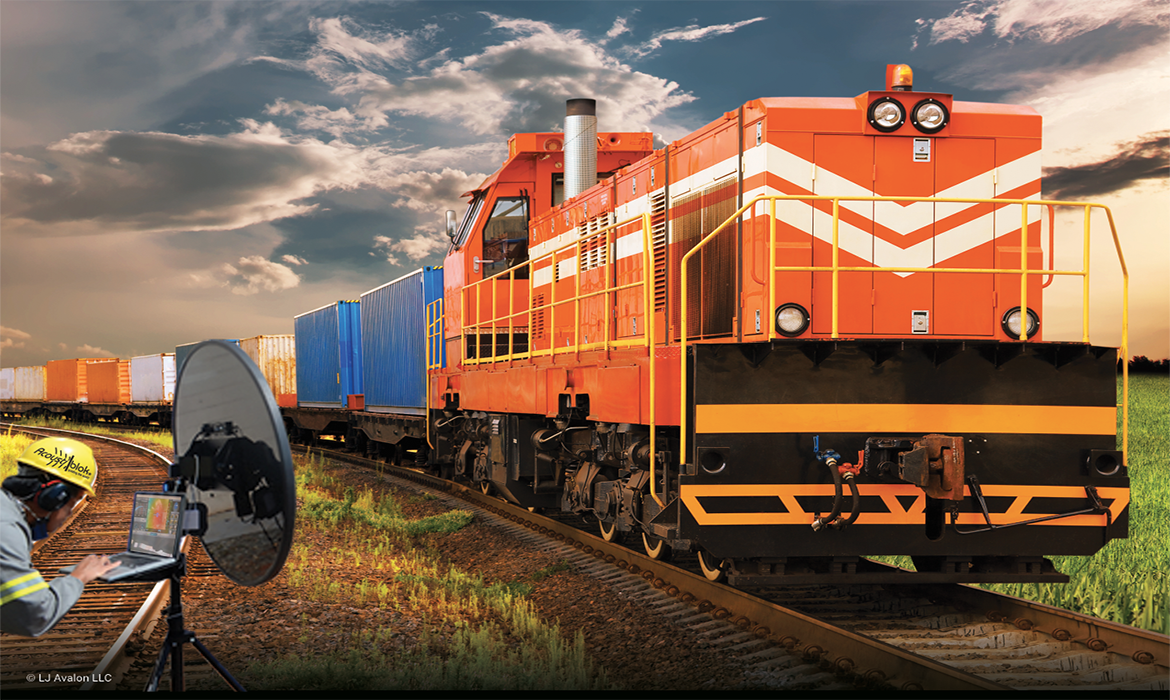ERFA together with the European transport organisations promotes the campaign: More budget for transport. The transport sector plays a very important role in our day to day lives. It employs over 20 million people, which represents 10% of total EU employment. Every day the sector faces new challenges. To keep up with the times we need to continue the process of innovation we have begun. High EU financial resources are so important for the future!
Read moreERFA together with the European associations representing the rail sector presents a joint paper explaining why it is so important to continue to invest in rail. The JP underlines the need of more finance resources for the future to guarantee further developments of the sector.
Read moreWhy does EU transport need more investments in the future? The transport associations from across the different modes, including ERFA, have joined forces to explain!
Read moreAn open letter to EU Commissioner Bulc and Federal Minister Dobrindt in order to underline the severe problems that rail freight is facing on Europe’s most important North-South corridor The Rhine valley railways will be interrupted for almost two months because of the Rastatt construction site incident. Once the route is reopened on the announced date of 7 October 2017, railway logistics will have suffered immense damage.
Read moreERFA provides input to the on-going discussions on legislative changes to the Access to Rail Facilities framework. ERFA welcomes the European Commission?s intentions to introduce transparent access conditions, pricing and clear procedures for handling requests and solving conflicts, with a view to optimising the effective use of service facilities for all railway undertakings, but hghlights potential loopholes in the latest draft.
Read moreERFA welcomes the current draft legislation as already a big step forward in improving the current poor planning of the IMs and the limited efforts made to minimise disruptions for RU services on national networks. The provisions that apply for capacity restrictions for cross border operations are also very helpful for improving the coordination work that is already supposed to happen on the RFCs, under Regulation 913/2010, but that does not take place/deliver any results.
Read moreRecently ERFA, together with other associations entered into a joint agreement with TÜV Süd, where the latter will provide the associations with an updated list of all applicable legislation for railway manufacturing, maintenance and refurbishment, also known as "Listing of directives relating to RFU-PLG Ol3"
Read moreThe primary objective of RINF is to support the process of assessing the route compatibility between the vehicle and the route. In order to support a sound assessment the register of infrastructure must be comprehensive. RINF has to be populated with the relevant information by each National Registry Entity (NRE).
Read moreERFA and CER highlight in a common position paper the differences of the broad-gauge systems and showcases their specific needs for vehicle authorisation in light of the 4th Railway Package?s Technical Pillar.
Read moreERFA believes that a single operational language, English, for international traffic is a necessary step towards an integrated Single European Railway Area, and should be part of the revision of the train drivers? directive (Directive 2007/59/EC). ERFA is convinced that a single operational language for international traffic is a simple but important step forward bringing supranational-orientation and competition in the European rail network as well as guaranteeing high safety standards.
Read moreERFA, representing new entrants in the rail market, very much welcomes the draft implementing act on access to service facilities and rail related services. The EU Commission's draft published in October responds to the concerns raised by many small railway undertakings from both passenger and freight sectors in Europe.
Read moreAs controlling the levels of railway transportation noise continues to be a hot topic for the industry, Maria Price, Head of European Policies and Public Affairs at the International Union of Wagon Keepers (UIP) and Markus Vaerst, Acting Secretary General of the European Rail Freight Association (ERFA), reflect on recent policies in this area. They also assess whether the Noise Differentiated Track Access Charges (NDTAC) scheme is raising more concerns than support towards railway noise reduction.
Read more

